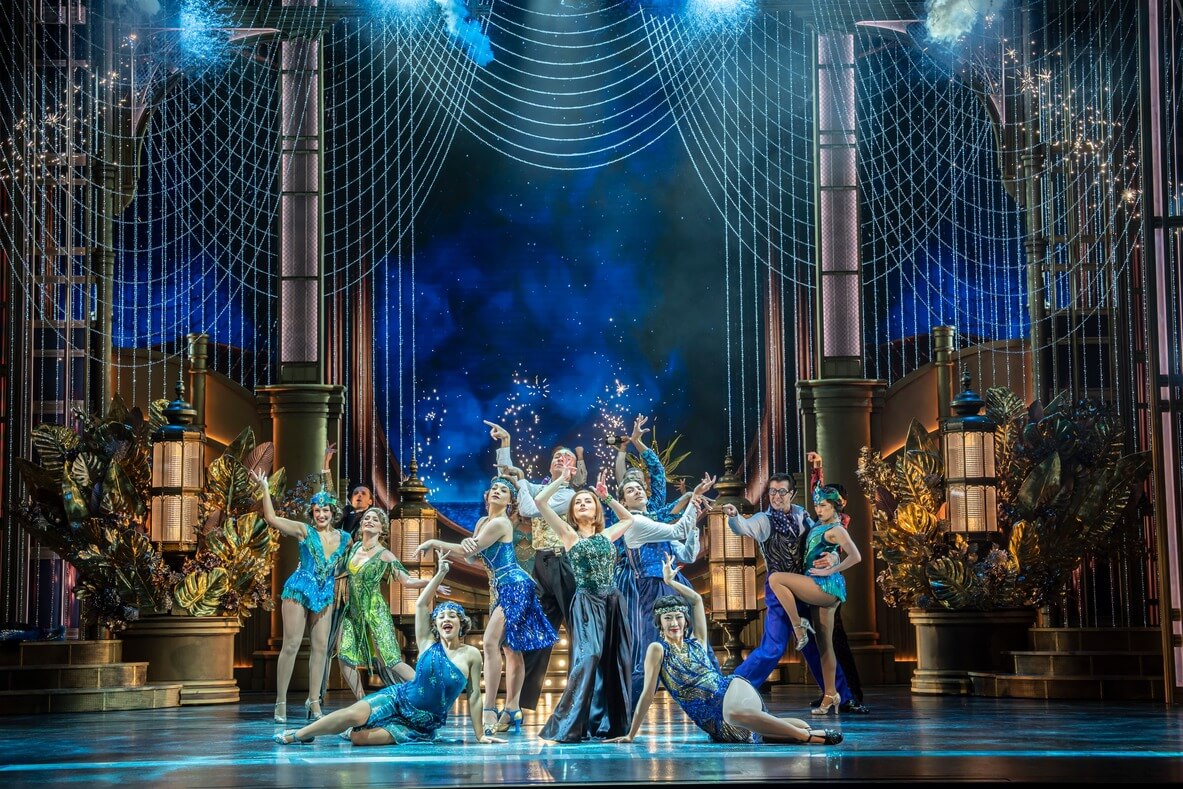You can feel the foundation of contemporary continental theatre in the production’s, text, style and the ensemble’s performances from the very first act. Adapted from two novels by Lithuanian writer Grigory Kanovich SMILE UPON US, LORD chronicles Efraim a father and stonemason on his journey from his shtetl to Lithuania’s “Jerusalem”: Vilnius to reach his son who is on trial for shooting a political Governor. The narrative echoes a modern day road trip if you will.
Speaking to us from a pre First World War existence, where the Jewish population is abundant and culturally rich but financially poor and facing subjugation, as life was harsh, cheap and sometimes meaningless. The story faces the truth about our futile existence. It also exposes that peace and war are closely linked and explores the Antisemitism of the plays present day whilst skilfully addressing what it will become in the future. With our current political climate this story becomes universal, it is not just a Jewish tale, but one for all of us.
The performances are detailed, physical and energetic (you would expect nothing less from a Russian company). The cast are a troupe in the true creative essence of the word. Sergey Makovetskiy as Efraim is a stoic force driving the company through the piece and skilfully playing with the pace and energy of the other performers as a steady pendulum throughout. Victor Dobronravov is a masterclass in honest and believable caricature in his portrayal of Khoyne-Genekh. Through his multidimensional character we see both the comedy and tragedy that is quintessential in Russian theatre. Yulia Rutberg’s performance as a goat was sensitive, tender, comic and unquestionable. She epitomised the more abstract nature of Tuminas’ storytelling where wardrobes became horses, adults children, and men wolves.
As with eastern bloc theatre the psychological and philosophical content was rich and subliminally shone through the style of the production, which did occasionally feel as though it was overcompensating. Faustas Latenas musical composition was the integral glue that held together the beautiful physical existence, truth in text and the sonic journey itself. Everything appears to be in rhythm, tune and harmony from the euphoric nature of the violins to a rock being thrown on stage.
Overall in what was a layered and timeless production it was unfortunate that in this theatrical and political climate there wasn’t more women on stage or in more focused parts of the story and although poignant the message of futility was repetitive. Because of this the action was occasionally weighed down. The silver lining: you leave the theatre feeling politically and intellectually stimulated provoked by the whole creative team and theatrical experience so much that it transgresses the Barbican stage itself, which doesn’t happen often enough on British stages.

 One of Russia’s most esteemed theatre companies Vakhtangov State Academic Theatre brings its anticipated production; SMILE UPON US, LORD to the Barbican. After witnessing over three hours of this epic there is no wonder why this company is held in high esteem. Vakhtangov State Academic have a rich and experienced history; and they bring it all into this production.
One of Russia’s most esteemed theatre companies Vakhtangov State Academic Theatre brings its anticipated production; SMILE UPON US, LORD to the Barbican. After witnessing over three hours of this epic there is no wonder why this company is held in high esteem. Vakhtangov State Academic have a rich and experienced history; and they bring it all into this production.



 Benjamin Britten’s operatic version of the hardy Shakespeare perennial was commissioned for the re-opening, in 1960, of the Jubilee Hall in his home town of Alderburgh, in Suffolk.
Benjamin Britten’s operatic version of the hardy Shakespeare perennial was commissioned for the re-opening, in 1960, of the Jubilee Hall in his home town of Alderburgh, in Suffolk.